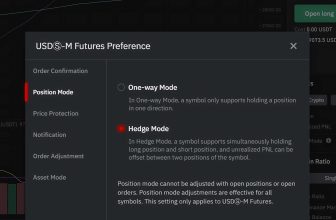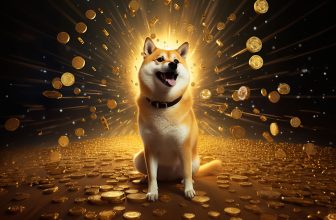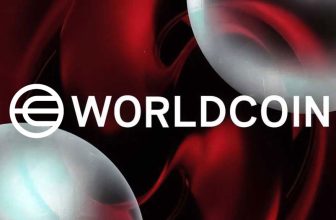Introduction
Within the high-velocity cosmos of digital metamorphosis, Non-Fungible Tokens (NFTs) have catapulted into the limelight, delineating a rich canvas of prospects and impediments alike. Furnished with the capability to revolutionize digital interactions and proprietorship, NFTs have sparked intrigue amongst investors, artisans, and tech enthusiasts worldwide. Nonetheless, the maze of comprehension and lucrative engagement with NFTs may seem intimidating.
This discourse untangles the cryptic domain of NFTs, acting as a navigational beacon for neophytes embarking on the journey towards NFT returns.
Understanding NFTs
Exploring the Concept of Non-Fungible Tokens
Stepping into the realm of the non-fungible, NFTs are distinctive digital assets symbolizing real-world or wholly digital items. Every NFT is distinctive and verifiable through blockchain technology, providing indisputable proof of ownership. Think of them as digital collectibles with a unique digital signature, distinguishing each one from the rest.
How NFTs Differ from Cryptocurrencies and Traditional Assets
NFTs possess an inimitable nature, contrasting starkly with cryptocurrencies like Bitcoin or Ethereum, where every unit is interchangeable. Unlike traditional assets, NFTs dwell entirely in the digital landscape, where ownership and transfer processes are securely managed via blockchain technology.
Key Characteristics of NFTs
Diving deeper into NFTs, they exhibit several key traits:
- Uniqueness: Every NFT houses distinct information, making it irreplaceable.
- Ownership Verification: Blockchain technology ensures every NFT’s ownership can be traced and verified.
- Indivisibility: Unlike cryptocurrencies, NFTs can’t be divided into smaller units. You buy, sell, or trade them as whole entities.
Getting Started with NFTs
Choosing the Right Blockchain Platform
Ethereum reigns as the most popular platform for NFTs, but others like Binance Smart Chain, Flow, or Tezos also support NFT transactions. Selection hinges on factors like transaction costs, speed, and the platform’s popularity among creators and collectors.
Setting Up Your Digital Wallet
A digital wallet is your gateway to the NFT universe. Wallets like MetaMask or Trust Wallet not only allow you to store digital assets, including NFTs and cryptocurrencies, but also facilitate transactions on NFT marketplaces.
Understanding Gas Fees and Transaction Costs
Transaction costs, or ‘gas fees,’ are payments made to network miners to process your transactions on the blockchain. They fluctuate based on network demand, acting as a critical consideration while transacting in NFTs.
Exploring Different Types of NFTs
Art and Collectibles: The Creative Side of NFTs
NFTs have sparked a renaissance in the digital art world, enabling artists to monetize their work in groundbreaking ways. Artwork and collectibles, like CryptoPunks or Beeple’s art pieces, command astronomical prices.
Gaming and Virtual Assets: Unlocking the Metaverse
Virtual gaming assets, like avatars or in-game items, are being tokenized as NFTs. Games like ‘CryptoKitties’ and ‘Decentraland’ offer a glimpse into a future where gamers truly own their in-game assets.
Music and Entertainment: Revolutionizing the Industry
NFTs empower musicians and entertainers to control the distribution of their content and profit directly from sales. From album releases to digital merchandise, the entertainment industry is tapping into the NFT gold rush.
Sports and Memorabilia: Digitizing Sports Collectibles
NFTs are digitizing the sports memorabilia market. NBA Top Shots, offering collectible highlight clips, has taken the sports and crypto world by storm.
Virtual Real Estate: Owning a Piece of the Virtual World
Virtual worlds like ‘Decentraland’ and ‘Cryptovoxels’ offer virtual land parcels as NFTs, opening up avenues for digital real estate investment and development.
Finding and Evaluating NFTs
Navigating NFT Marketplaces
Marketplaces like OpenSea, Rarible, and NBA Top Shot are bustling digital bazaars for discovering, buying, and selling NFTs. Each marketplace offers different types of NFTs with distinct vibes and community ethos.
Identifying High-Quality NFTs
Quality in the NFT realm is subjective and depends on factors like the creator’s reputation, rarity, utility, and the underlying asset’s intrinsic value.
Factors to Consider When Evaluating NFTs
Key factors to ponder include:
- Rarity: The scarcity of an NFT can significantly impact its value.
- Authenticity: Verify the creator’s legitimacy to avoid counterfeit NFTs.
- Liquidity: Consider the NFT’s demand and the likelihood of resale.
- Community: A strong community around an NFT can indicate potential value.
Buying and Selling NFTs
Bidding and Auctions: How to Participate
Participating in NFT auctions is straightforward. Once you’ve found an NFT you covet, place your bid before the auction ends. If your bid remains the highest when the clock runs out, you become the proud new owner.
Strategies for NFT Buying and Selling
Strategies involve aspects like:
- Research: Understand the market trends and the specific NFT’s value proposition.
- Timing: NFT markets can be volatile. Buy or sell when the timing feels right.
- Budgeting: Set a budget to avoid overspending.
Navigating Secondary Markets and Peer-to-Peer Trading
Secondary markets facilitate the resale of NFTs. Platforms like OpenSea host a thriving secondary market, while peer-to-peer trading involves direct transactions between buyers and sellers.
Creating Your Own NFTs
Steps to Mint Your Own NFT
Minting is the process of turning digital content into an NFT on the blockchain. Platforms like Mintable or Rarible simplify the process, allowing anyone to mint their own NFTs.
Tips for Creating Marketable NFTs
Creating successful NFTs involves:
- Uniqueness: Create something distinct that stands out.
- Storytelling: An engaging backstory can increase an NFT’s appeal.
- Quality: High-quality artwork or content can fetch higher prices.
Legal Considerations for NFT Creators
Understanding intellectual property rights is vital. Minting copyrighted material can lead to legal disputes. Also, as an NFT creator, retaining the original copyrights post-sale is crucial.
Understanding NFT Royalties and Secondary Sales
Royalties: Earning from Future Sales
NFT creators can earn royalties from future resales of their NFTs, providing a recurring income source. The percentage varies across different platforms.
Secondary Marketplaces and Platforms
Secondary marketplaces enable the resale of NFTs, where royalties come into play. Choose a marketplace that recognizes and pays out creator royalties.
Storing and Displaying NFTs
Securing Your NFT Collection
Safeguarding NFTs involves storing them in secure digital wallets and implementing strong security measures like two-factor authentication.
Digital Wallets and Storage Options
Wallets like MetaMask, Trust Wallet, or hardware wallets
like Ledger, offer secure storage for your NFTs.
Displaying NFTs in Virtual Galleries and Showrooms
Virtual galleries like Cryptovoxels or OnCyber allow NFT owners to display their digital artwork, creating an immersive experience.
Marketing and Promoting Your NFTs
Building an Online Presence as an NFT Creator
Building an online presence involves consistently creating and sharing content, interacting with followers, and establishing a unique personal brand.
Engaging with the NFT Community
Participation in community forums and social media groups and attending virtual meetups can help build relationships and gain valuable insights.
Leveraging Social Media and Influencers
Social media platforms and influencers can amplify your NFT’s visibility, potentially leading to higher sales.
NFT Trends and Opportunities
Emerging Trends in the NFT Space
Trends like fractional ownership of NFTs, cross-chain interoperability, and NFTs with embedded experiences point towards an exciting future.
NFTs as Investment Opportunities
As digital assets, NFTs offer unique investment opportunities. However, like any investment, understanding the market and doing thorough research is crucial.
NFTs in the Future: What to Expect
The fusion of NFTs with sectors like DeFi, gaming, VR, and AI hints towards a future where the line between the physical and digital worlds blurs even further.
Risks and Challenges of NFTs
Potential Scams and Fraud in the NFT Market
Scams can range from counterfeit NFTs to ‘rug pulls’. Due diligence and caution can help mitigate these risks.
Volatility and Price Fluctuations
NFT markets are volatile, with prices fluctuating wildly. It’s essential to invest wisely and not get swept up in the hype.
Environmental Impact and Sustainability Concerns
The environmental impact of NFTs, particularly those on energy-intensive platforms like Ethereum, is a growing concern. Eco-friendly platforms and ‘green NFTs’ offer sustainable alternatives.
Conclusion
While NFTs offer enticing profit potential, understanding their dynamic nature, market trends, and inherent risks is paramount. As the NFT landscape continues to evolve, staying informed and adaptable is key to a profitable journey.
FAQs
What makes an NFT unique?
Each NFT contains distinct information or attributes that distinguish it from any other token. This unique data is stored in its smart contract and verified on the blockchain.
Can anyone create an NFT?
Yes, anyone can mint an NFT. Several platforms make it easy to turn your digital content into NFTs, often without needing any coding skills.
Can NFTs be resold?
Absolutely. NFTs can be sold on various marketplaces, and many NFT creators earn royalties from these secondary sales.
Are all NFTs expensive?
Not at all. While some high-profile NFTs have sold for exorbitant prices, plenty of affordable NFTs are available. Prices depend on the creator’s reputation, rarity, and community demand.
Are NFTs environmentally friendly?
NFTs, particularly those on the Ethereum network, have been criticized for their environmental impact due to the energy-intensive processes. However, some NFT platforms use more eco-friendly validation mechanisms, and ‘green NFTs’ are emerging as sustainable alternatives.






